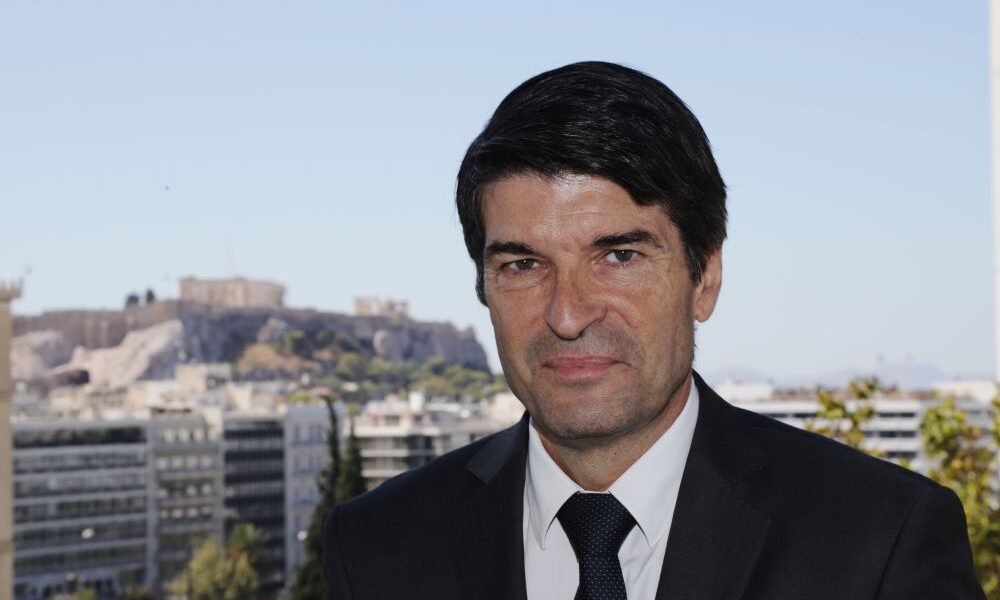In an interview, the French Ambassador to Greece, Patrick Maisonnave, highlighted that threats against Greece are threats against Europe.
This July 14th (Bastille Day) is quite different, Ambassador. What is your message to the Greek people in this protracted health crisis?
For the second consecutive year, COVID-19 prevents us from organising the traditional celebration that brings together my compatriots and their Greek friends on July 14th.
However, the 200 years since the Greek Revolution that we celebrated together - in which, as we all know, France played a prominent role - are a testament to an excellent relationship, fermented with friendship and trust between our leaders and our peoples.
So my message is twofold: Greece-France, Alliance! And, in relation to the possible new outbreak of the pandemic, vigilance, caution and vaccination, because the vaccine is the best available protection, the one that saves lives and will allow the repetition of all our activities.
Our two countries share strategic interests. How can this convergence of views lead to a more cohesive cooperation?
Since my arrival in Greece, about two years ago, we have been working with the aim of unprecedented strengthening of our political and defense relationship.
Why?
Because France's political commitment to the Aegean and the Eastern Mediterranean leaves no doubt: the challenges facing Greece pose a threat to all Europeans and to the international order in general, based on respect for international law and relations good neighborhood.
The deterrent presence of the French armed forces in Greece and the region is the expression of this convergence and testifies to the strong commitment we undertake on the side of Greece.
In the face of threats, Greece must have the means to ensure its security, and I am particularly pleased with the choice of the Rafale aircraft, which will offer Greece a definite strategic advantage, while facilitating the interoperability of our armed forces.
But it is also a choice of logic: it is right for Greece to acquire strategic equipment from their French partner whom it knows it will be able to count on in any case.
The choice of French weapons - the Rafale and, I hope, also the FDI frigate - is for Greece the clearest choice of a strong strategic relationship with a reliable partner.
In this area, many French companies are present at the DEFEA exhibition.
They believe in the stability of our relationship and the development of industrial and technological Greek-French collaborations in the coming years.
I also note that cooperation is not limited to the strategic field. Together we must face many challenges - security, immigration, health crisis management, employment, the fight against climate change - to which Greece and France converge to a great extent.
These convergences are sources of inspiration for our companies, which aspire with their expertise and know-how to participate together with their Greek partners in the unprecedented effort of development and modernisation of Greece, in order to energise the island of Halki.

A new meeting of the leaders of the Mediterranean countries is scheduled for September, this time in Greece. What could be the future of Mediterranean Europe, both in terms of its connection to the EU's North, as well as its geographical and historical links with North Africa and the Middle East?
One year after the Ajax Summit, Greece will host on September 17, at the invitation of Mr. Mitsotakis, the heads of state and government of many Mediterranean countries.
Mediterranean Europe is at the heart of most of Europe's challenges, be it climate, environmental, migration or security.
On the subject of climate change, warming is set to hit the Mediterranean hardest, warming faster than other seas and oceans. In terms of the environment, the Mediterranean offers significant prospects for the development of sustainable energy.
The Mediterranean basin, this "cradle of humanity" that we love so much, has once again become a space of tensions fueled by the play of some actors who gain interest through confrontation.
On top of all these priorities, Mediterranean Europe is at the forefront of shaping the European solutions we will need tomorrow.
We need to send a common message to our European partners in Northern and Eastern Europe, but also to our partners in North Africa and the Near East.
France and Greece are working hand in hand on these issues, with a common vision based on solidarity between Member States, respect for international law and in particular the law of the sea, and the goal of a profound transformation of our economies to address climate and environmental risks.
This interview first appeared in Greek in Kathimerini.


